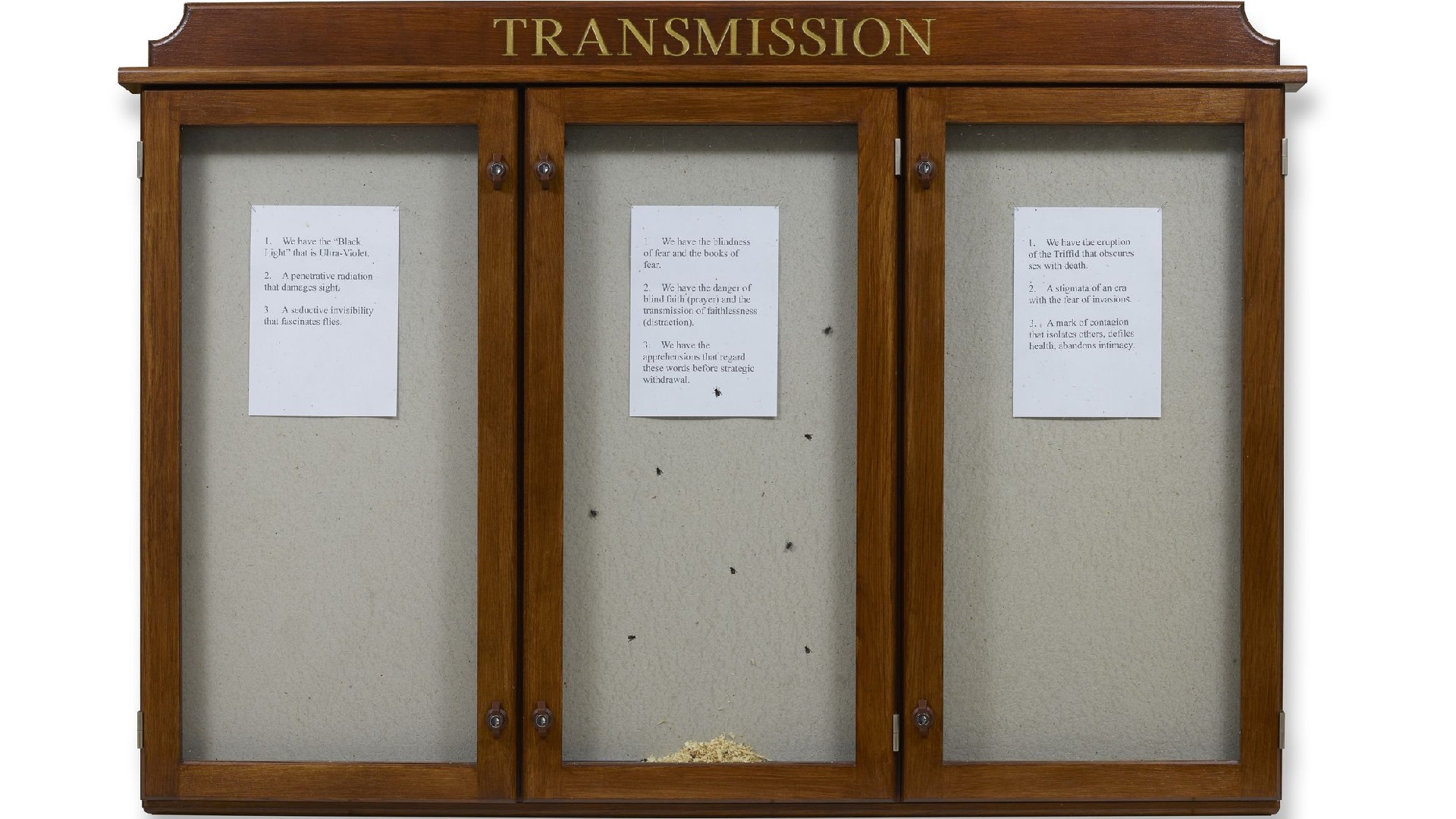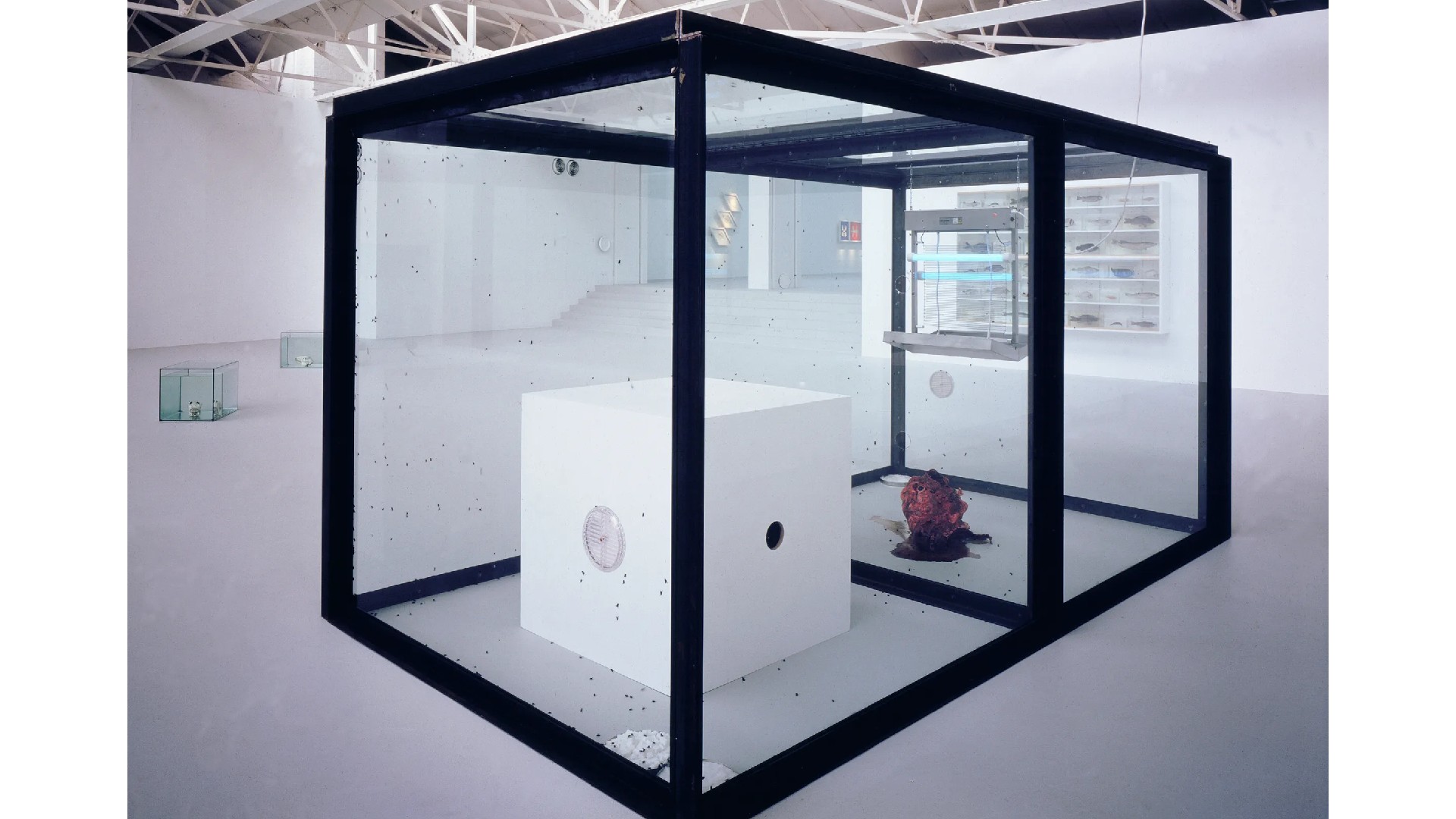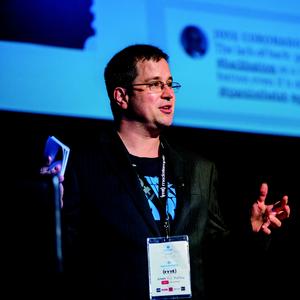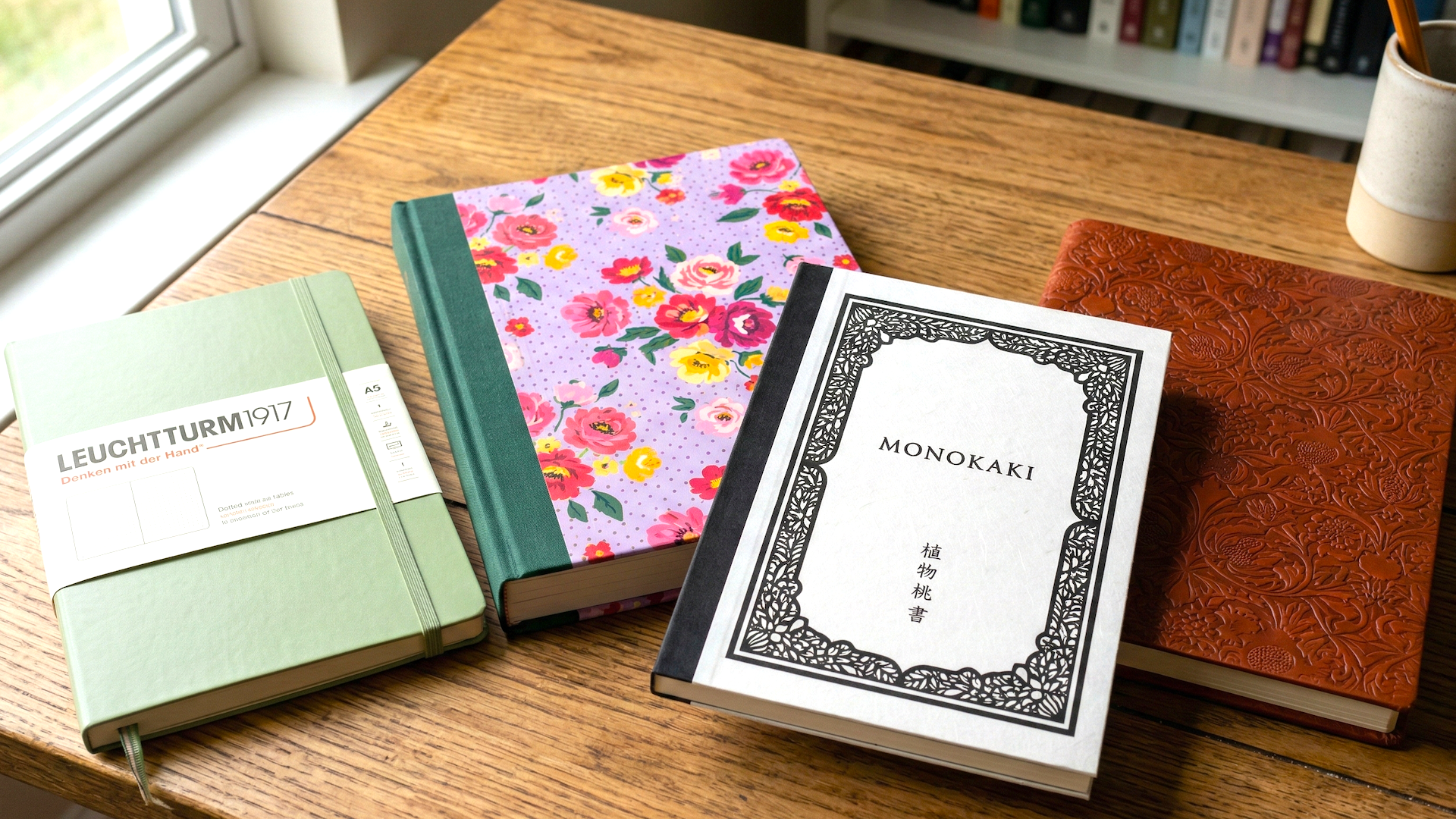
Sign up to Creative Bloq's daily newsletter, which brings you the latest news and inspiration from the worlds of art, design and technology.
You are now subscribed
Your newsletter sign-up was successful
Want to add more newsletters?
So here we are again, watching another celebrated artist squirm under the magnifying glass of plagiarism accusations. This time it's Damien Hirst – Britain's richest artist, worth a cool $384 million – allegedly pinching the fly-based concept that launched his career from a fellow Goldsmiths student who died tragically young and largely forgotten.
According to curator Dominic Johnson, Hirst's breakthrough piece A Thousand Years– you know, the one with flies munching on a cow's head that made Charles Saatchi reach for his chequebook – bears a suspicious resemblance to Hamad Butt's Fly-Piece, created a month earlier in June 1990, which consisted of live flies in a glass display case.
Butt apparently developed the prototype in 1989 whilst studying alongside Hirst at Goldsmiths. I've never met either man, and I'm not an expert on copyright law. But Hirst himself has cheerfully admitted that "all my ideas are stolen anyway", attributing this approach to following Michael Craig-Martin's dictum: "Don't borrow ideas, steal them."
(To make your own work, that isn't stolen, see how to start painting on canvas, and our best iPad for drawing post.)
The magpie defence
Hirst has previously likened himself to a cultural magpie, and frankly, hasn't the art world has always been a bit magpie-ish? Picasso supposedly said "good artists copy, great artists steal" – though ironically, he may well have borrowed that line from T.S. Eliot.
There's something particularly galling, though, about this latest accusation. Hamad Butt wasn't just any artist – he was wrestling with complex identity issues. As a gay Muslim in the 1980s, facing familial pressure to abandon art for science, he was dealing with parents who literally tore down his work. He died of AIDS in 1994, aged just 32, before he could properly establish himself.

Meanwhile, Hirst has spent decades building an empire on what may well have been someone else's breakthrough idea. The irony is sharp enough to cut glass (or suspend a shark in formaldehyde).
Sign up to Creative Bloq's daily newsletter, which brings you the latest news and inspiration from the worlds of art, design and technology.
Butt's Fly-Piece wasn't just about flies; it was about cycles of consumption, information being "literally eaten, digested and passed on." There's a horrible irony in how his own work appears to have been consumed, digested, and passed on by the art world machinery, with Hirst allegedly reaping the rewards.
Is this all null and void?
But perhaps I'm being too harsh. Maybe Hirst was simply ahead of his time, anticipating our current moment where originality is becoming an endangered species. After all, we're rapidly entering an era where AI can generate "new" artworks by synthesising millions of existing pieces, creating something technically original but fundamentally derivative.
The more you follow this train of thought, the more you go down a deep, dark tunnel. When everything becomes a copy of everything else, when algorithms can analyse and replicate any artistic style, what's left to steal?
So maybe artists don't own anything any more. Maybe in our AI-saturated, endlessly derivative future, the very concept of artistic ownership will seem as outdated as paintbrushes.
Until that brave new world arrives, though, perhaps we could at least try to remember the humans behind the ideas. Especially the ones who died too young to see their stolen thunder returned to them. After all, in a world where everything's a copy, the least we can do is get the credits right.

Tom May is an award-winning journalist specialising in art, design, photography and technology. His latest book, The 50 Greatest Designers (Arcturus Publishing), was published this June. He's also author of Great TED Talks: Creativity (Pavilion Books). Tom was previously editor of Professional Photography magazine, associate editor at Creative Bloq, and deputy editor at net magazine.
You must confirm your public display name before commenting
Please logout and then login again, you will then be prompted to enter your display name.
